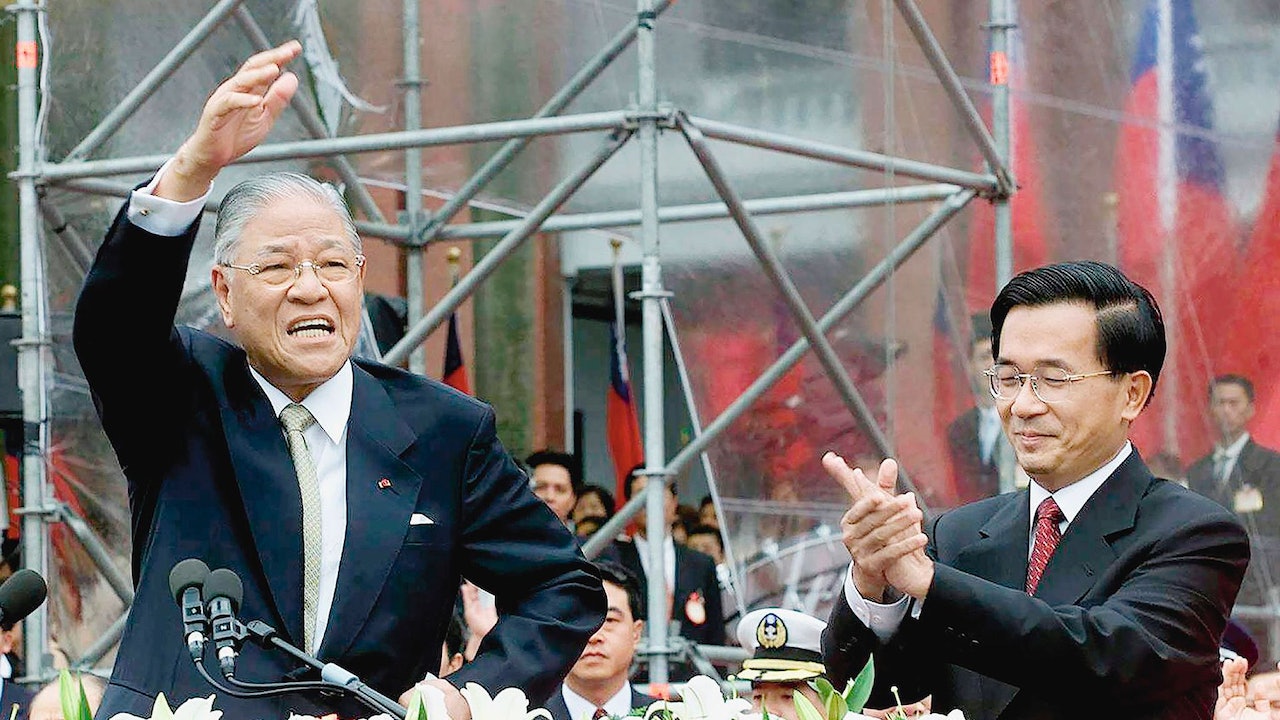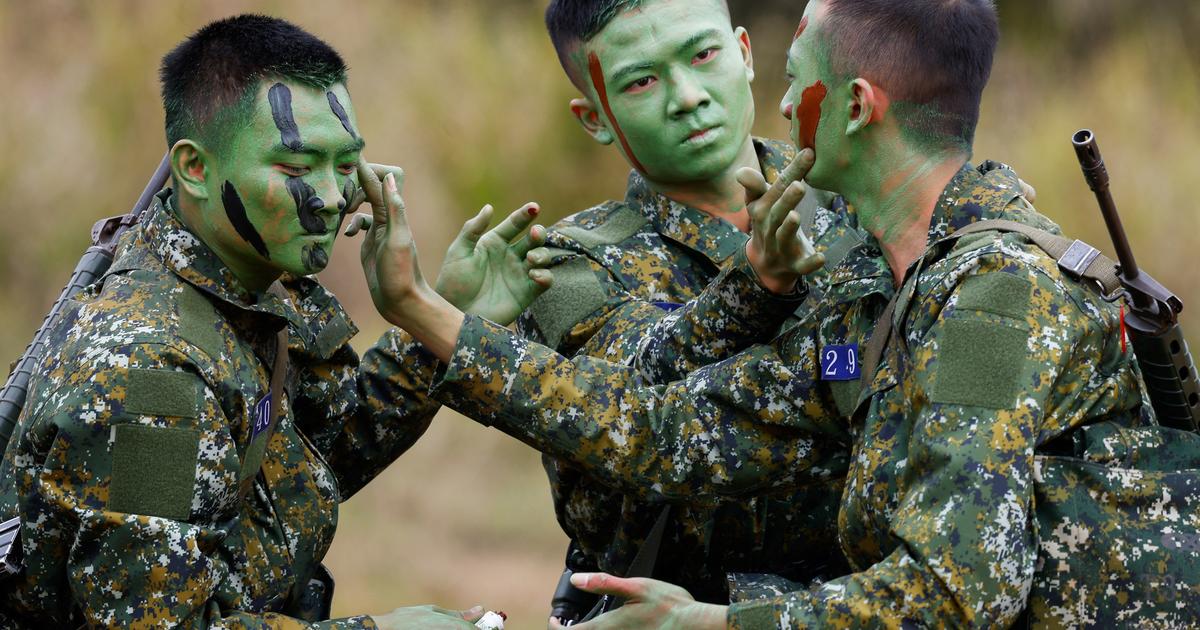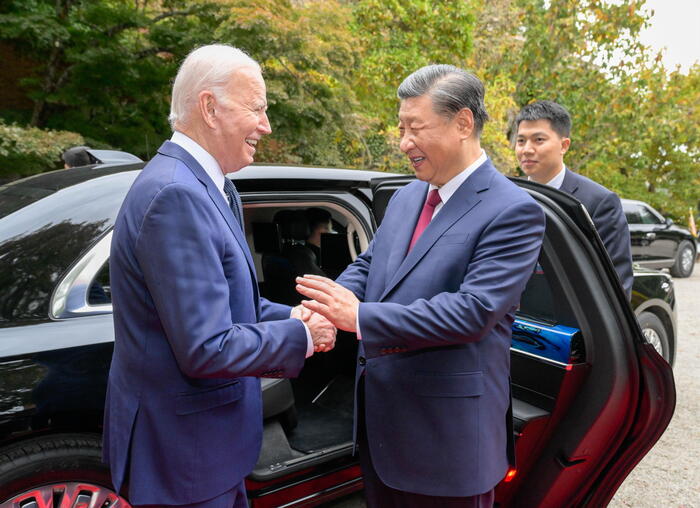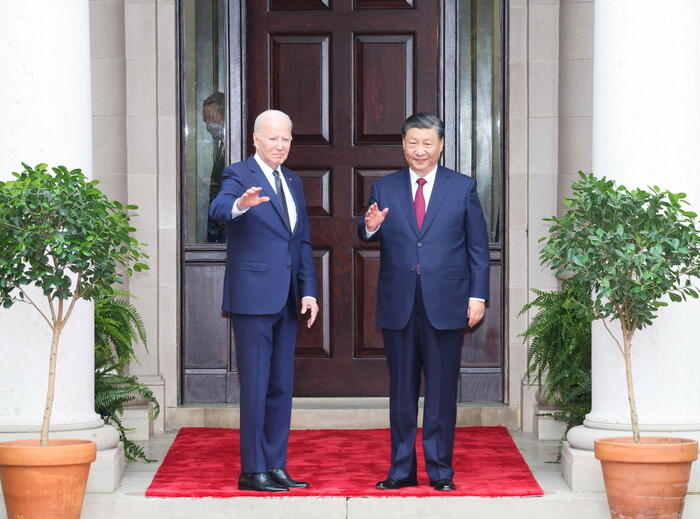Since the beginning of 2023, Beijing has exerted pressure on Taiwan through military exercises and unified consultations. With internal and external factors such as the game between China and the United States in the Taiwan Strait and Taiwan’s presidential election in 2024, when and in what form the Taiwan issue will start a new situation. heated discussion.
Li Qihong, a senior journalist from Singapore, recently published a new book "From "Chinese" to "Taiwanese": The Transformation of Taiwanese Political Identity (1995-2008)" in Taiwan. In traction, it provides rare ideological material for solving cross-strait problems.
Due to historical origins and geographical proximity, especially at a time when the political turmoil between China and the United States is turbulent, the Taiwan issue has always been a key issue that Singapore's political, academic, and media elites value.
For example, the current Prime Minister Lee Hsien Loong once warned that Singapore should be psychologically prepared for the sharp escalation of tension in Taiwan; the current Deputy Prime Minister Lawrence Wong warned that China and the United States may be "sleepwalking" towards conflict; Underestimating the seriousness of the issue of manipulation over Taiwan, which is highly sensitive to mainland China, could provoke a sharp response from Beijing.
In addition to the above concerns from Singaporean politicians about the real situation in the Taiwan Strait, Li Qihong's new book brings a deeper historical perspective and explores the fierce collision between the artificially created "Taiwanese nationalism" and "Chinese nationalism", with particular emphasis on How did the cross-strait policies in the era of Lee Teng-hui and Chen Shui-bian lead to turbulent cross-strait relations today?
Li Qihong, a senior journalist from Singapore, published a new book "From "Chinese" to "Taiwanese": The Transformation of Taiwanese Political Identity (1995-2008)" in Taiwan, explaining the historical context of the transformation of Taiwanese political identity.
(Photo by Zhang Junkai)
Lee Teng-hui and Chen Shui-bian's instrumental "Taiwan independence"
Li Qihong, the author of "From "Chinese" to "Taiwanese", is now the deputy director of the China News Group of the "Lianhe Zaobao" in Singapore, and lectures on cross-strait relations in university classrooms.
Li Qihong has eight years of news reporting experience stationed in Taipei, Hong Kong, and Guangzhou. He also obtained a master's degree from the Institute of East Asian Studies at Chengchi University, a center for "China studies" in Taiwan. He has become the only friend of the institute from Singapore so far. The three places have close first-hand and profound observations.
The book was adapted from his doctoral dissertation in the Chinese Department of the National University of Singapore. Li Qihong described the research and writing process as an eight-year "long march of thought".
It has undergone a transition from "political China" to "cultural China". Its problem awareness originated from the inauguration of Lee Teng-hui as the president of Taiwan. Taiwan's "native consciousness" jumped from the underground to the stage. The reassessment of "Chinese" cognition "made me confused for the first time when I wanted to go to Taiwan to find "cultural China".
The official political tension between the two sides of the strait also made Li Qihong "better aware of the various obstacles and difficulties in the peaceful reunification of the two sides of the strait."
Throughout the book, different from the definition and classification of "Taiwan Independence" by scholars in mainland China, Li Qihong, based on his interviews and literature comparisons, distinguishes "Taiwan Independence" from the dual relationship between nation and state construction into
"Taiwan Independence Fundamental Doctrine School"
(construction "Taiwan nation" against the Chinese nation),
"legal Taiwan independence faction"
(establishment of the "Republic of Taiwan", culturally does not deny the Chinese nation),
"substantial Taiwan independence faction"
(establishment of the "Republic of China" second republic, special two-state theory, cross-strait integration theory) and other three types.
Li Qihong believed that Lee Teng-hui's "Taiwan independence" advocated a vacillating position with an opportunistic tendency.
(Visual China)
At the same time, Li Qihong used the "separation theory" of German experience to compare the political positioning of the CCP, the Kuomintang, and the Democratic Progressive Party on both sides of the Taiwan Strait, as well as the similarities and differences of the three positions in different periods, and thus expressed the lament of a bystander: "The two sides of the Taiwan Strait are helpless. The authorities reacted too late when the other side’s policy was adjusted, and repeatedly missed historical opportunities for reconciliation and negotiation.” Interestingly,
Li Qihong also challenged Lee Teng-hui and Chen Shui-bian’s traditional cognition of “Taiwan independence” because he believed that the former revealed the issue of “manipulating the ‘localization’ issue.” The latter can see that "Chen Shui-bian, who was born as a lawyer, does not have a firm idea of Taiwan independence, and his Taiwan independence line is only a tool for winning elections, not an idea."
The status quo and identity of the Taiwan Strait is not the "end of history"
The essence of Li Qihong's research is that he borrowed Mao Zedong's concept of mutual transformation between "principal contradiction" and "secondary contradiction" to emphasize that the biggest sticking point between the two sides of the strait is still the positioning of the "Republic of China".
The Kuomintang maintains its relationship with Beijing with "One China", but continues to shift to "Taiwan Subject Discourse". Although the DPP's discourse is parasitic on the "Republic of China", its purpose is to downplay and get rid of "One China" and highlight "Two China". country".
After Tsai Ing-wen came to power, the former foreign minister of the mainland, Wang Yi, had a "constitution theory" in a speech at a US think tank on February 25, 2016, that is, "their 'constitution' stipulates that the mainland and Taiwan belong to the same China."
In Li Qihong's view, Wang Yi's new statement has two meanings: "Does it mean that Beijing has accepted the political reality that the two sides of the Taiwan Strait are at this stage "one split and one China"? Does it mean that the CCP acquiesces to the "Republic of China"? Objective existence to prevent Taiwan’s public opinion from further slipping toward “legal Taiwan independence”?”
This new book concludes with this rather optimistic expectation, which instead makes readers feel more intrigued by comparing the realities on both sides of the Taiwan Strait.
Just as Zheng Yongnian, Li Qihong’s doctoral supervisor, currently chair professor of the Chinese University of Hong Kong (Shenzhen) and dean of the Institute for Advanced Study in Global and Contemporary China, said in the preface to this book,
“There is no status quo in the Taiwan Strait, and the Taiwan issue itself is a dynamic. The nature of the process is also constantly changing", and "the most troublesome issue facing Chinese leaders may be the Taiwan issue, and Taiwan is most likely to become an emergency in China's diplomatic relations".
Zheng Yongnian, a well-known expert on China's national conditions, wrote a recommendation preface for the book "From "Chinese" to "Taiwanese", pointing out that "Taiwanese nationalism" is artificially created, which is not only related to cross-strait relations, but also related to globalization.
(Hong Kong 01)
The "golden cross" between "Chinese" and "Taiwanese" in the context of polls in Taiwan occurred in 1994 when Lee Teng-hui was in power, and was further catalyzed by the Chen Shui-bian era. With the policy of reconciliation, Taiwan's contradictions with China's identity have become difficult to step on the brakes.
However, the change of identity itself has historical internal logic. In Taiwan, it is also drawn by multiple factors such as cross-strait relations, Sino-US competition, and politician manipulation. The issue of the "Republic of China" is still pending, but it is not the "end of history" that has changed forever.
A New Imagination of the Final and New Situations of the Cross-Strait Straits
Although only six years have passed since 2016, the world and the situation in the Taiwan Strait have undergone earth-shaking changes, which is quite the epitome of "a century of changes".
Beijing issued the "Two Systems Taiwan Plan" initiative to Taiwan. The "New Era Party's Overall Strategy for Solving the Taiwan Issue" was written into the CCP's "Third Historical Resolution" and the Political Report of the 20th National Congress. , Taiwan translated as Pelosi) visited Taiwan and launched the third white paper on Taiwan called "Taiwan Issue and the Cause of China's Unification in the New Era".
The round of contest between China and the United States on the Taiwan issue, as well as Beijing's military deployment in the Taiwan Strait, can also be said to be different from what it used to be.
In other words, whether it is time and situation, initiative or passivity, the cross-strait relationship is changing rapidly, and "maintaining the status quo" is just an outdated rhetoric used by Taiwanese politicians to paralyze themselves.
Taiwan's "unification and independence problem" and the "Republic of China" barrier entangled in the minds of blue and green politicians are objectively speaking the situation and dilemma that Taiwan has actually experienced due to historical problems. Li Qihong's new book has done a lot for this. An in-depth and faithful record.
Zheng Yongnian put forward his expectations for the book: "It will provide a certain reference value for the Chinese mainland government to understand the emotional appeal of Taiwan compatriots to be the masters of the country, and thus provide a certain reference value for the long-term stability of cross-strait relations after reunification and the improvement of the "One Country, Two Systems Taiwan Plan." In this sense, , Li Qihong's new book also opens up a new space for readers to imagine the end of the cross-strait and the new situation just around the corner.
Singaporean Prime Minister Lee Kuan Yew once said:
"No country can prevent the reunification of the two sides of the strait. Lee Teng-hui's teaching Taiwanese to separate from China will not change the result of the reunification of the two sides of the strait. It will only make Taiwanese feel more painful in the process of reunification. "
Is Taiwan ready?"
Promoting talks with military force: Beijing's New Year's gesture toward Taiwan?
The United States will send officials to Taiwan to help Beijing accelerate its "post-unification" imagination?
"One Country, Two Systems" Knowledge Taiwan Calendar Enters Campus: The Big Politics Behind the Small Calendar
Song Tao is in charge of the director of the Taiwan Affairs Office of the State Council, the three deep foreign affairs, the economic parallelism, the practice of peaceful reunification, the commitment to Chinese-style modernization, and Taiwan’s view.















